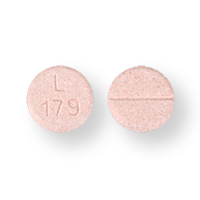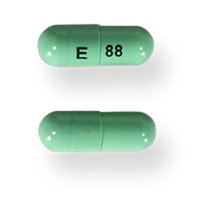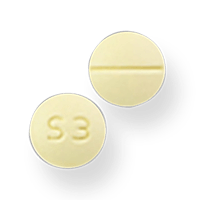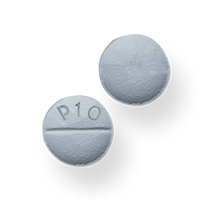Anxiety disorders are very common, affecting around 40 million adults in the U.S. Female-identifying patients show higher rates of anxiety disorders (23.4%) compared to male-identifying patients (14.3%).
Anxiety

Anxiety is an emotion that occurs as a normal part of everyday life in response to stress. However, anxiety conditions such as generalized anxiety disorder, social anxiety disorder, specific phobias, panic disorder, obsessive-compulsive disorder, and separation anxiety disorder are medical conditions that require treatment. They usually involve more extreme or longer bouts of anxiety that interfere with your life.
It is not fully understood what exactly causes anxiety disorders. Trauma, family history, and certain medical conditions all seem to play a role.

People Affected
Risk Factors
There are a variety of factors that can increase the possibility of you being diagnosed with an anxiety disorder:
Trauma (traumatic events can trigger anxiety disorders)
Stress
Certain medical conditions (such as heart disease, diabetes, hypothyroidism, chronic obstructive pulmonary disease, asthma, chronic pain, and irritable bowel syndrome)
Other mental health conditions (such as depression)
Family history
Drugs or alcohol
Signs & Symptoms
There are a wide variety of symptoms generally associated with anxiety disorders, including:
Nervousness, restlessness, and tension
Feeling an impending sense of danger, panic, or doom
Increased heart rate
Rapid breathing
Sweating
Trembling
Weakness or tiredness
Trouble concentrating
Trouble sleeping
Stomach problems
Excessive worrying
The urge to avoid anxiety-inducing triggers
You may also feel additional symptoms or have specific triggers depending on the exact type of anxiety disorder you have. Some common anxiety disorders include:
Generalized anxiety disorder: This refers to consistent and excessive anxiety that is present overall and persists through ordinary, everyday activities.
Separation anxiety disorder: This most often affects children, and it refers to excessive anxiety in the child when separated from their parents.
Social anxiety disorder: This is a condition where you might feel intense fear, anxiety, and avoidance in social situations.
Panic disorder: This refers to repeated “panic attacks” or bouts of intense anxiety. Symptoms of a panic attack can include feeling impending doom, shortness of breath, chest pain, and heart palpitations.
Obsessive-compulsive disorder: This involves recurring and intrusive thoughts that might make you want to perform specific, repeated behaviors.
Phobia: Intense fear of a particular situation, activity, or object.
Pharmacist Tip
Most people find that taking medication is only part of treating an anxiety disorder. A form of behavior therapy called cognitive-behavior therapy (CBT) done with psychologists alongside medication is commonly thought to be more effective for the range of disorders discussed in this section.
Some anti-anxiety medications are addictive, others may cause withdrawal symptoms, and others yet are not addictive at all. It’s possible you might develop a tolerance to some anti-anxiety medications, which means you may need to increase your dose to get the same effects.
Be aware too that it might take a trial and error process before finding the right prescription medication or combination for you. Different medications may have different side effects, so please consult with your pharmacist and/or review the paperwork that came with your prescription to find information.
Medical Experts
Primary Care Physician: Your primary care doctor can help diagnose and treat anxiety disorders. However, they may also refer you to a psychiatrist.
Psychiatrist: Psychiatrists are medical specialists who focus on the treatment of mental health conditions, including anxiety disorders. They can prescribe and treat using prescription medication.
Therapist: Therapists, also known as psychologists, can help manage anxiety disorders through behavioral techniques and talk therapy. While they cannot prescribe medications, they often work alongside psychiatrists to help with treatments.
Diagnosis
Your primary care physician, psychiatrist, and/or therapist may give you a psychological evaluation as a means to diagnose your anxiety disorder.
Prescription Treatment
Several different types of prescription medications can help treat and manage anxiety disorders. Some options include certain antidepressants that target anxiety, anti-anxiety medications such as buspirone, and/or sedatives (also called benzodiazepines) for short-term relief.
Not all generics are the same. Different people respond better to different versions of the same drug, depending on the manufacturer. You can search our website to find the best fit for you.
Lifestyle Remedies
There are many lifestyle accommodations you can make to help your mental health and manage anxiety. Staying physically active can help reduce stress and improve your mood. Eating healthy can also help reduce anxiety, especially vegetables, fruits, whole grains, and fish. Try to prioritize sleep and other stress-reduction strategies such as mediation and yoga. Lastly, cut back on alcohol, recreational drugs, nicotine, and caffeinated beverages, as they can worsen anxiety.




